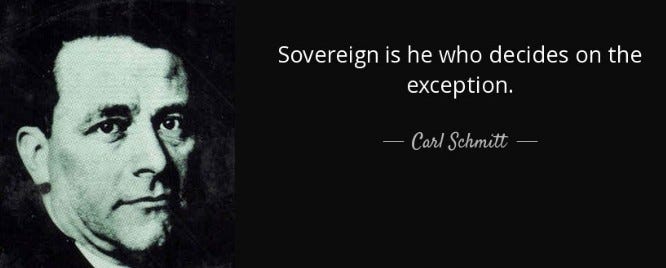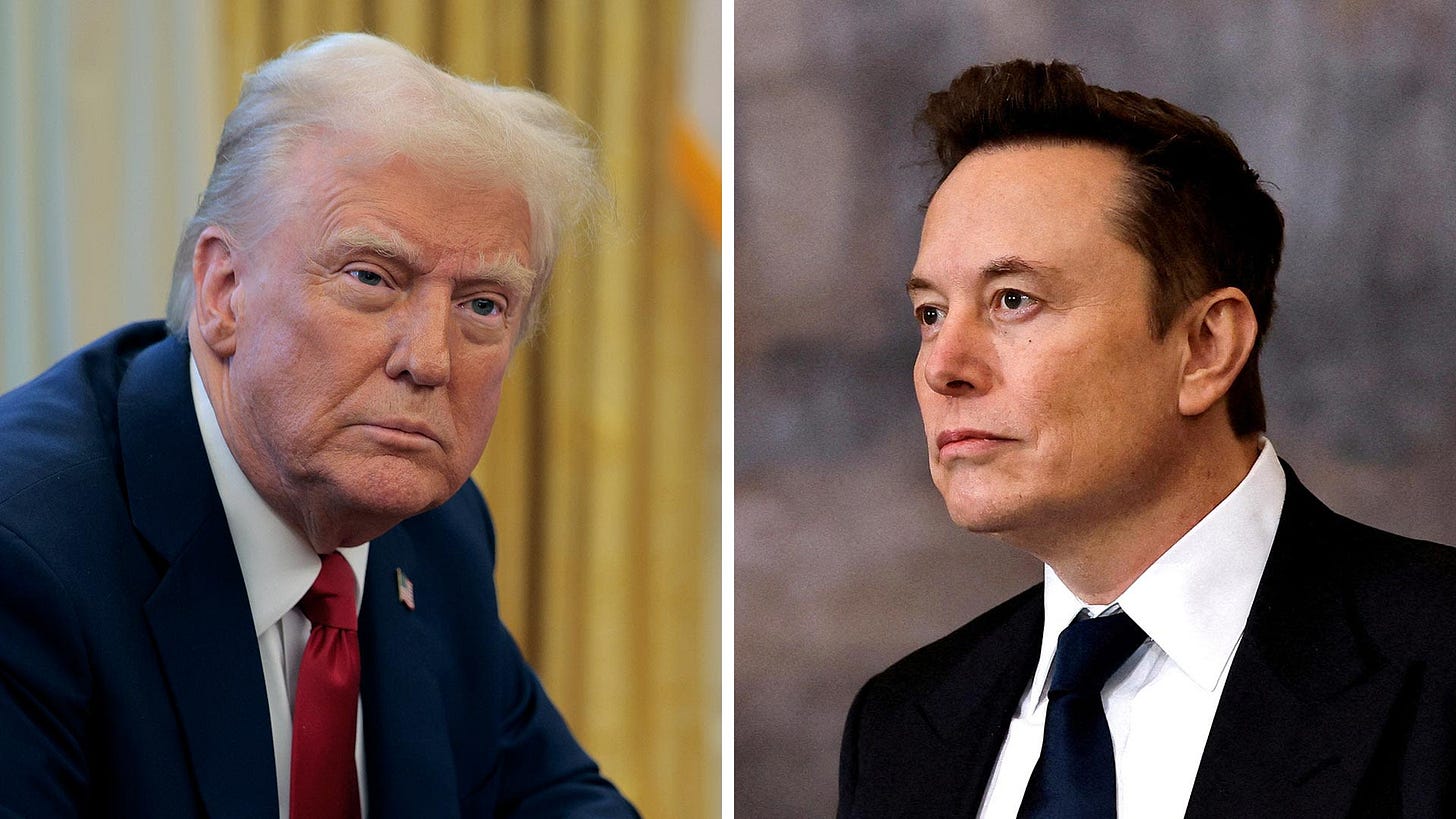Carl Schmitt’s The Concept of the Political is one of the most sobering works of twentieth-century political philosophy. It offers no comfort, no idealism, and no reconciliation. Its power lies in its precision and refusal to obscure the nature of political life.
Schmitt understood that the attempt to abolish politics is itself a political act, and often the most dangerous kind. Against the liberal belief in universal peace and endless negotiation, he affirms a harsher truth. Politics does not begin with dialogue or compromise. It begins with the drawing of a boundary between friend and enemy, a principle he identifies as the friend-enemy distinction.
For Schmitt, politics is not defined by laws or parliamentary procedure, nor by market exchange or humanitarian sentiment. It is defined by the possibility of conflict. The political arises whenever a human group identifies another group as a potential threat to its collective existence. That identification may be cultural, ethnic, religious, or ideological, but it is not reducible to any of these domains. Politics begins where differences become so serious that men are willing to die, or to kill, for them.
The Latin language captures this distinction clearly. Schmitt invokes the terms hostis (public enemy) and inimicus (private adversary). Politics begins with hostis, not inimicus. It is not a private rivalry, but a collective relation. The friend-enemy distinction is not personal hatred, but existential opposition. One may feel no animosity toward the enemy as an individual, yet recognize that he belongs to a group whose goals negate one’s own. This recognition is not moral. It is not based on who is right or wrong. It is not concerned with truth, but with survival.
This is why Schmitt rejects the liberal effort to recast conflict as something manageable through expertise, negotiation, or commerce. It treats conflict not as a matter of existential opposition, but as a technical problem to be solved through compromise.
The liberal imagines that differences can be managed by institutions, that reason can prevail without coercion, and that war is an aberration that progress will eliminate. Schmitt denies this. The liberal utopia, he argues, is a mirage that conceals its own violence. Every regime must decide whom it protects and against whom it mobilizes. That decision is sovereign. And sovereignty, Schmitt writes, is defined by the capacity to decide on the exception, that is, to determine when normal law is suspended, and who the enemy is.
The sovereign does not merely administer law. He defines the conditions under which law applies. And he does this, not in the abstract, but in the real world of threat and conflict. When a state declares war, it is not acting arbitrarily. It is naming its enemy. When it refuses to name its enemy, or denies that it has one, it merely ensures that others will do so in its place.
The implications are enormous. To abolish politics would require eliminating the very capacity to take differences seriously. For a society to truly transcend conflict, it must either erase all difference or render difference meaningless. The first is attempted through assimilation, domination, and violence. The second is attempted through relativism, consumerism, and moral indifference. Both lead to spiritual ruin.
The man who no longer believes that anything is worth fighting for is not a moral hero. He is a symptom of decay. He is what Nietzsche called the Last Man, the one who prefers comfort to greatness, safety to struggle, and personal peace to public truth. The liberal world promises him everything except meaning. And he accepts the bargain, because he has been taught that all meaning, all value, is dangerous.
Schmitt’s conception of the political has deep roots in classical philosophy. Plato and Aristotle both recognized a third part of the soul that modern psychology often ignores. They called it thumos (spiritedness). It is neither reason nor appetite, but the source of pride, honor, and righteous indignation. It is thumos that makes men defend their people, their beliefs, and their way of life. It is thumos that makes politics possible. Without it, there is only calculation and consumption.
In Hegel’s philosophy of history, this spiritedness is not only individual, but world-shaping. History, for Hegel, is the unfolding of human freedom through conflict. Competing interpretations of who we are confront one another, not just in books and classrooms, but on battlefields and in revolutions. The truth of human nature is not established through consensus, but through struggle. Schmitt inherits this view, but strips it of any eschatological comfort. For him, the conflict never ends. There is no final reconciliation. There is only the ever-present possibility of decision.
This is why every utopia ends in coercion. The more a regime insists that it represents all of humanity, the less it can tolerate dissent. The man who disagrees becomes not just wrong, but evil. And because evil cannot be compromised with, the regime must destroy him. The wars of modernity are not limited conflicts over territory or power. They are total wars of moral extermination. The bombing of Dresden, the annihilation of Hiroshima, the flattening of cities in the name of progress all follow from this logic.
Schmitt’s warning is not merely about war, but about the illusions that prepare the ground for it. Foremost among these is the belief that politics can be abolished, that differences no longer matter, and that all values are ultimately interchangeable. These are not harmless errors. They serve as instruments of control, masking coercion behind the rhetoric of peace. When politics is denied, it does not disappear but returns in concealed forms: through cultural revolution, demographic transformation, economic manipulation, and ideological censorship. The liberal order claims to have transcended politics, yet it imposes its orthodoxy more rigidly than any regime that came before it.
Liberalism adopts the appearance of neutrality. It imagines that public life can be structured around individual rights, procedural fairness, and free exchange. But this neutrality is an illusion. It masks the friend-enemy distinction behind bureaucratic language and humanitarian slogans. When liberalism encounters an enemy it cannot assimilate, it responds with the full force of its institutional machinery, not in the name of a particular people, but in the name of humanity as a whole; not to defend a defined community, but to suppress what it designates as intolerance; not as a political decision grounded in interest, but as a moral imperative presented as universal and absolute.
The result is a politics stripped of responsibility. Decisions are made, enemies are designated, and wars are waged, yet always in the name of abstract ideals. The regime takes life, but refuses to admit that it has chosen to do so. It dismantles nations under the pretense of expanding freedom. It silences dissent, yet calls it protection. The enemy is no longer recognized as a political opponent, but reframed through a therapeutic vocabulary of inclusion and harm. This is not the disappearance of politics, but its disfigurement.
Against this, Schmitt offers no easy solution. He does not advocate conflict for its own sake, nor does he glorify violence. His aim is not justification, but precision, a clear understanding of what politics is and what it demands. To understand the political is not to celebrate war, but to recognize its inevitability. To understand sovereignty is not to worship the state, but to accept that someone must decide. And to understand the enemy is not to hate him, but to know that he cannot always be negotiated with.
What matters most in Schmitt’s analysis is not strategy or policy, but orientation. A people that no longer knows what it is cannot recognize its friends. And a people that refuses to identify its enemies will be ruled by those who do.
In the end, politics is not a game, but the realm in which the course of human destiny is shaped. It is not made obsolete by peace treaties or trade agreements. It reemerges whenever men remember that they belong to something greater than themselves, and it vanishes only when they forget.
Carl Schmitt reminds us that politics begins with decision, and that every true decision reveals who we are. In an age that denies all boundaries, in a culture that celebrates indifference, this reminder is both dangerous and necessary.
For those who seek to build a world rooted in identity, hierarchy, and truth, Schmitt is not only a theorist. He is a guide to the foundations of political order, and a forerunner of a renewal yet to come.
Let the others dream of a world without enemies. We will prepare for the world as it is.
This essay was first published on my X account, @ccrowley100. It now appears here in expanded form for archival and wider accessibility.







Thank you for your extraordinary work.
Sometimes, those reminders are too painful to reconcile.
"Carl Schmitt reminds us that politics begins with decision, and that every true decision reveals who we are. In an age that denies all boundaries, in a culture that celebrates indifference, this reminder is both dangerous and necessary.l"